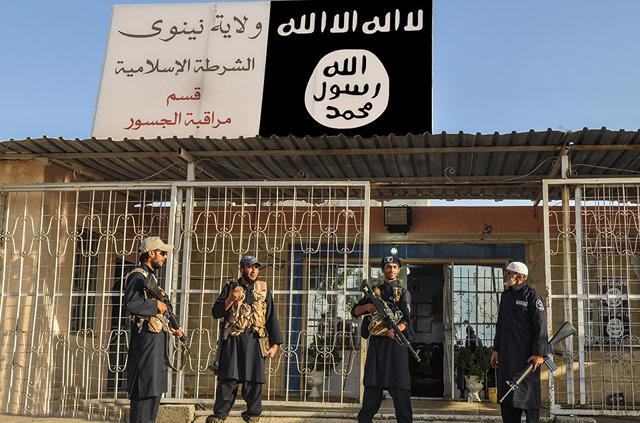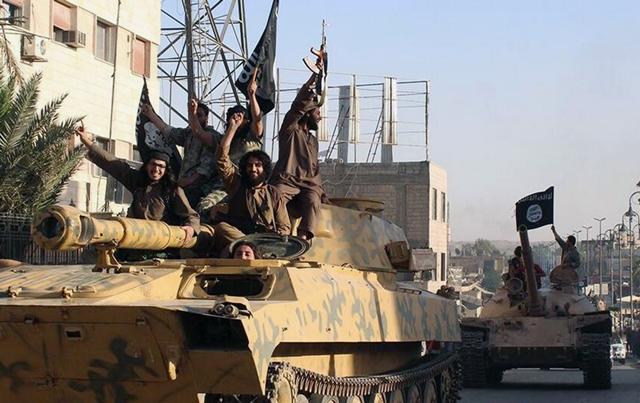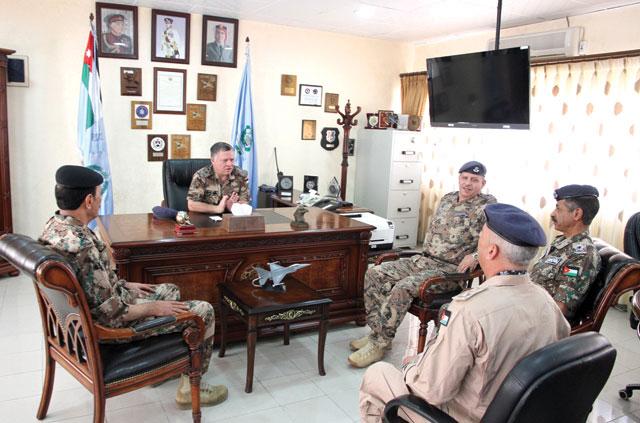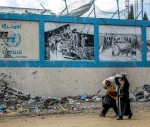You are here
Air force hits IS in Syria as int’l coalition starts anti-terror mission
By JT , Agencies - Sep 24,2014 - Last updated at Sep 24,2014

AMMAN – Officials confirmed Tuesday that air force warplanes had joined US-led strikes against the Islamic State (IS) group in Syria.
Minister of State for Media Affairs and Communications Mohammad Momani told The Jordan Times and Al Rai that the Royal Jordanian Air Force (RJAF) “took part in the strikes which are part of our efforts to defeat terrorism in its strongholds".
Momani, who is also the government spokesperson, said there is no decision when to end the strikes, which, he said, are meant to neutralise terror groups, “after a neighbour has failed to stop infiltrations into Jordan”.
Jordan Armed Forces (JAF) also said that RJAF at dawn launched air strikes against "terrorist groups" that were planning attacks in Jordan.
The JAF statement did not name the terrorist groups and did not say where air strikes were, but indicated that Jordanian fighter jets destroyed a number of targets belonging to terrorists.
The air force jets returned safely to their bases, said the army statement.
The US Defence Department announced that the US and partner nation forces have begun air strikes inside Syria against IS terrorists.
Pentagon Press Secretary Navy Adm. John Kirby said in a statement the strikes were being undertaken through a mix of fighter and bomber aircraft and Tomahawk Land Attack Missiles.
US Central Command (CENTCOM) has conducted a total of 190 air strikes across Iraq in the battle against IS forces. The decision to begin the air strikes in Syria was made earlier Tuesday by CENTCOM Commander Army Gen. Lloyd Austin, the admiral said.
The strikes are being made under authorisation granted by the US commander in chief, President Barack Obama, as part of the comprehensive strategy to degrade and ultimately destroy IS.
‘Air strikes kill at least 120 jihadists’
The United States and its Arab allies bombed Syria for the first time on Tuesday, killing scores of IS fighters and members of a separate Al Qaeda-linked group, opening a new front against militants by joining Syria’s three-year-old civil war, Reuters reported.
In a remarkable sign of shifting Middle East alliances, the attacks encountered no objection — and even signs of tacit approval — from President Bashar Assad’s Syrian government, which said Washington had notified it in advance.
CENTCOM said Bahrain, Jordan, Qatar, Saudi Arabia and the United Arab Emirates participated in or supported the strikes against IS targets.
The air strikes killed at least 120 jihadists in Syria on Tuesday, Agence France-Presse reported quoting a monitoring group.
The dead included more than 70 members of the IS group in the north and east of Syria, as well as 50 Al Qaeda militants, according to the Britain-based Syrian Observatory for Human Rights.
Eight civilians, among them three children, were killed in US strikes in the west of northern Aleppo province, the observatory said.
The group said at least 300 people were injured in the strikes, about 100 of whom were in serious condition.
Obama said in a televised statement that the breadth of the coalition, including the five Arab states, showed the United States was not alone, according to Reuters.
“Once again, it must be clear to anyone who would plot against America and do Americans harm that we will not tolerate safe havens for terrorists who threaten our people,” Obama said before leaving the White House for the United Nations in New York, where he planned more talks to enlarge his alliance.
It remains to be seen how effective air strikes can be against IS in Syria, where Washington lacks a strong ally to fight the group on the ground. The militants vowed reprisals, and an allied group is threatening to kill a French hostage captured in Algeria.
In a sign of how IS’ rise has blurred conflict lines, the Syrian government said Washington had informed it hours before the strikes in a letter from Secretary of State John Kerry, sent through his Iraqi counterpart.
The Pentagon said US Ambassador to the United Nations Samantha Power had informed Syria’s envoy in advance but there had been no coordination and no communication between the two countries’ armed forces.
The Syrian foreign ministry refrained from criticising the US-led action. State media reported that a senior Iraqi envoy briefed Assad on the next steps and the Syrian leader said he supported any international effort to fight terrorism.
Related Articles
Jordan confirmed Tuesday that its warplanes had joined US-led strikes against the Islamic State (IS) group in Syria, Agence France-Presse (AFP) reported.
Political commentators and military experts hailed the air strikes the Royal Jordanian Air Force (RJAF) launched Tuesday against the Islamic State (IS) group in Syria, describing Jordan's membership in the US-led coalition against the radical militia as highly needed.
His Majesty King Abdullah, the Supreme Commander of the Jordan Armed Forces, on Tuesday visited one of the Royal Jordanian Air Force (RJAF) bases, where he expressed satisfaction with the performance of the corps.

















